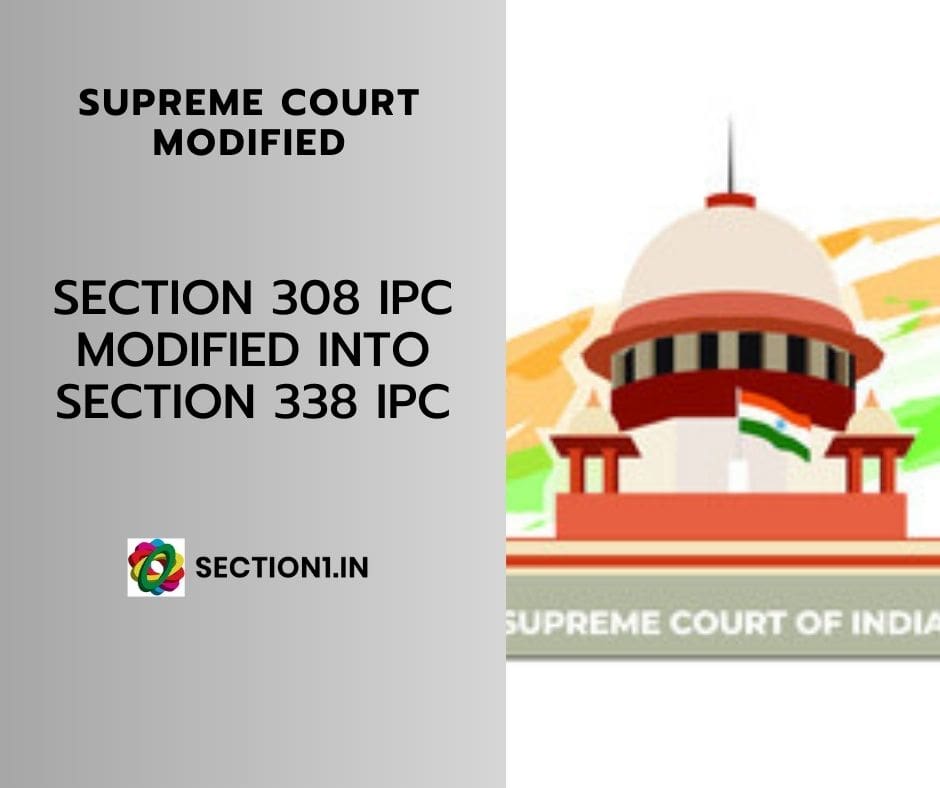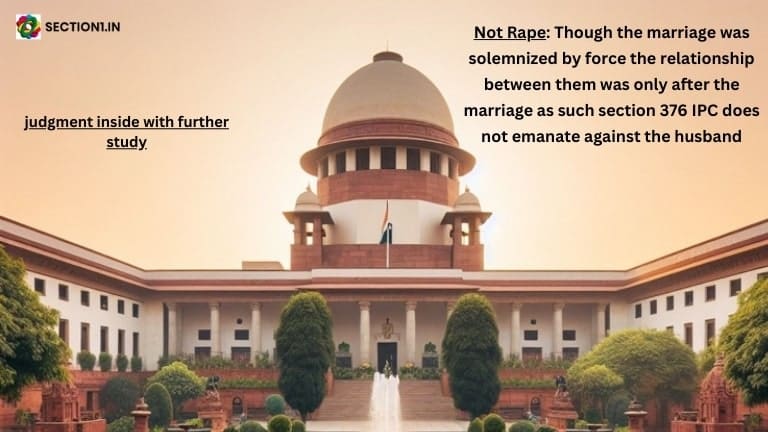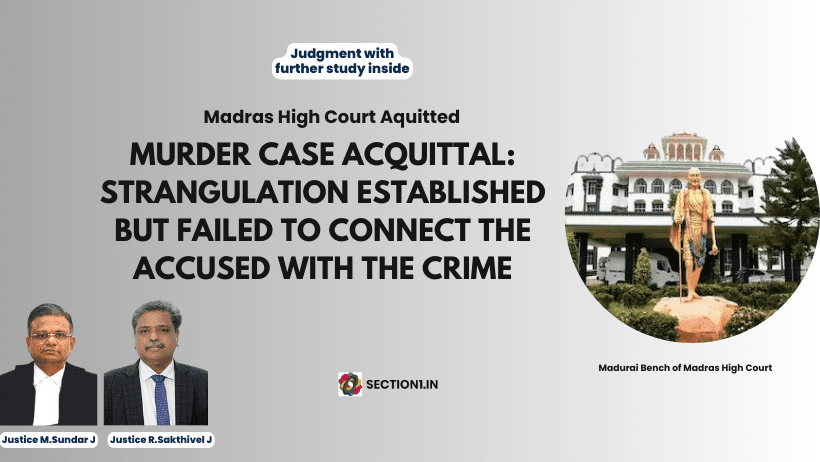2. The question which arises in this appeal is whether the conviction of the appellant for the offence punishable under Section 308 of the Indian Penal Code (IPC) can be sustained.
RELEVANT FACTUAL ASPECTS
3. The present appellant is accused No. 2. The accused no.1 was the driver of a stage carriage bus. The appellant-accused No.2 was the conductor, and accused No. 3 was the cleaner. PW1 Josia (injured) was at the relevant time studying in 8th standard. She along with her younger sister Jovan, PW7, were waiting at the Karithambu bus stop for boarding a bus for going to their school. According to the prosecution case, after the bus reached the said bus stop, PW7 Jovan boarded the bus followed by two other girls. There was a rush for boarding the bus. When PW1 Josia tried to board the bus by putting her one leg on the footboard of the bus, accused no.3 pushed her down with his hands while he was standing on the footboard of the bus. The girl fell down on the road and came under the left rear wheel of the bus. She sustained serious injuries including fracture of pelvis. The allegation against the appellant was that without waiting for the PW1 to board the bus, he rang the bell as a result of which accused No.1 started the bus. The prosecution applied offences punishable under Sections 279 and 308 read with Section 34 of IPC. Apart from PW1 and PW7, PW2 Sister Elsamma, a teacher was an important witness. She was a teacher working in the same school where PW1 and PW7 were studying. She was standing at the same bus stop when the incident occurred and therefore, she is an eyewitness to the incident.
OUR VIEW
7. We have perused the evidence of PW1. Her version in the examination in chief reads thus:
“Jovan (CW7my sister) and I were waiting at Karithambu bus stop for going to school.
Bus named Ponmankal had arrived. As it was packed, I told Jovan that we will get in the next bus. Jovan told that she had special class and that we will board this bus. We board the bus in line. Jovan boarded the bus. Jovan’s bus fare was with me. Jovan was studying in 7th standard. After Jovan, 2 other elder girls boarded the bus. Cleaner was standing inside the bus. I stepped my one leg inside the bus and boarded it. By that time the bus moved. I asked the cleaner to hold me. Cleaner came to hold me but did not get hold of me. By then, I tripped and fell outside. I fell beneath the bus. I was unconscious.” (emphasis supplied).
8. In the cross-examination, PW1 stated that if her younger sister (PW7) had not boarded the bus, she would not have boarded the bus. As the bus ticket of her sister (PW7) was with PW1, she attempted to board the bus. PW2 Sister Elsamma was standing at the same bus stop at the time of the incident. She stated that though some of the students of her school boarded the bus, she decided not to board the bus as it was overcrowded. She stated that while PW1 was attempting to board the bus, the bell rang and the bus started moving as a result of which she fell down from the footboard. PW7 partly did not support the prosecution. PW7 stated that PW1 had suggested her to take the next bus. However, she insisted on boarding the said bus as she had to attend special classes. She stated that while PW1 was attempting to board the bus, the conductor rang the bell.
9. Prosecution placed reliance on the Kerala Motor Vehicle Rules, 1989 (for short, “the Kerala Rules”) which are framed under the Motor Vehicles Act, 1988. Under Rule 89, the conduct, duties and functions of conductors have been laid down. Clause (o) of Rule 89 relied upon by the Prosecution lays down that it is the duty of the conductor not to interfere with persons mounting and preparing to mount upon any other vehicle. Clause (o) is obviously not applicable to this case.
11. Under Section 308, an attempt to commit culpable homicide not amounting to murder has been made an offence. Therefore, we will have to examine whether there was any attempt on the part of the appellant to commit culpable homicide.
12. It is not the prosecution’s case that the appellant had any intention to cause the death of PW1 or intention to cause such bodily injury to her as is likely to cause her death. The question is whether the appellant had knowledge that he, by virtue of the act of ringing the bell, was likely to cause death. It is not possible to say that the appellant while ringing the bell, had knowledge that his act is likely to cause the death of PW1. The bus was over crowded. The cleaner was standing near the footboard. Therefore, in the absence of intention and knowledge as contemplated by Section 299 of IPC, the offence of attempt to commit culpable homicide not amounting to murder was not made out. This is not a case where if the appellant’s act would have resulted into the death of PW1, he would be guilty of culpable homicide, not amounting to murder.
13. By applying principles incorporated in subsection (2) of Section 222 of the Code of Criminal Procedure, 1973 (for short, “CrPC”), the Court can consider whether the appellant has committed any other offence which is a minor offence in comparison to the offence for which he is tried.
14. Now, we turn to Section 338 of IPC, which reads thus:
“338. Causing grievous hurt by act endangering life or personal safety of others.—Whoever causes grievous hurt to any person by doing any act so rashly or negligently as to endanger human life, or the personal safety of others, shall be punished with imprisonment of either description for a term which may extend to two years, or with fine which may extend to one thousand rupees, or with both.”
At that relevant time, the bus was overcrowded. There were a number of passengers waiting at the bus stop. Therefore, it was the duty of the appellant as a conductor to take care of the passengers. Hence, before he rang the bell and gave a signal to the driver to start the bus, he ought to have verified whether all passengers had safely boarded the bus. He could have ascertained this from accused no. 3 – cleaner who was standing near the door of the bus. However, he did not take that precaution and care which he was under an obligation to take. Therefore, the appellant acted rashly and negligently as he did not perform his duty of being careful. The appellant knew that at the relevant bus stop, a large number of students were waiting to take the bus to reach their school and therefore, the appellant ought to have verified whether all the passengers had properly boarded the bus before giving the signal to the driver. However, he did not verify whether the passengers had properly boarded the bus. Therefore, he is guilty of negligence as he failed to perform his duty. In fact, this was an act of recklessness on his part. The fact is that due to the negligence on the part of the appellant, human life was endangered. Grievous hurt was caused to PW1 as she suffered fracture of pelvis.
15. In the circumstances, we are of the view that the appellant is guilty of the commission of an offence punishable under Section 338 of IPC. There will not be any prejudice caused to him as the appellant had sufficient notice of allegations of negligence against him during the trial. Hence, omission to frame charge under Section 338 of IPC will not be fatal. For the offence punishable under Section 338 of IPC, the period of imprisonment can extend to two years. As noted earlier, the incident is of 2005. So far, the appellant has undergone the sentence for only 36 days. In our view, considering the fact that the incident is of the year 2005 and other factual aspects, a sentence of simple imprisonment for six months will be an appropriate punishment in the facts of the case. As per the directions of the High Court, a sum of Rs. 50,000/had been deposited by the appellant. Looking at the serious injuries sustained by PW1 at the young age of 13 years, she must be adequately compensated. The High Court had imposed a fine of Rs. 50,000/which amount has been deposited. In addition to the sum of Rs. 50,000/already deposited, we propose to direct the appellant to deposit an additional amount of Rs. 25,000/.
PARTY: Abdul Ansar vs. State of Kerala … Respondent – Criminal Appeal @ S.L.P. (Crl.) No.2161 of 2023 – July 5, 2023.
https://main.sci.gov.in/supremecourt/2022/21473/21473_2022_12_1503_44778_Judgement_05-Jul-2023.pdf






